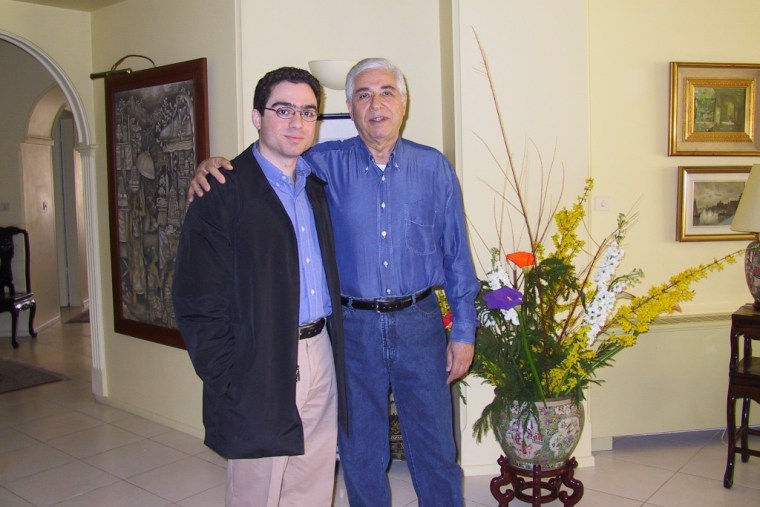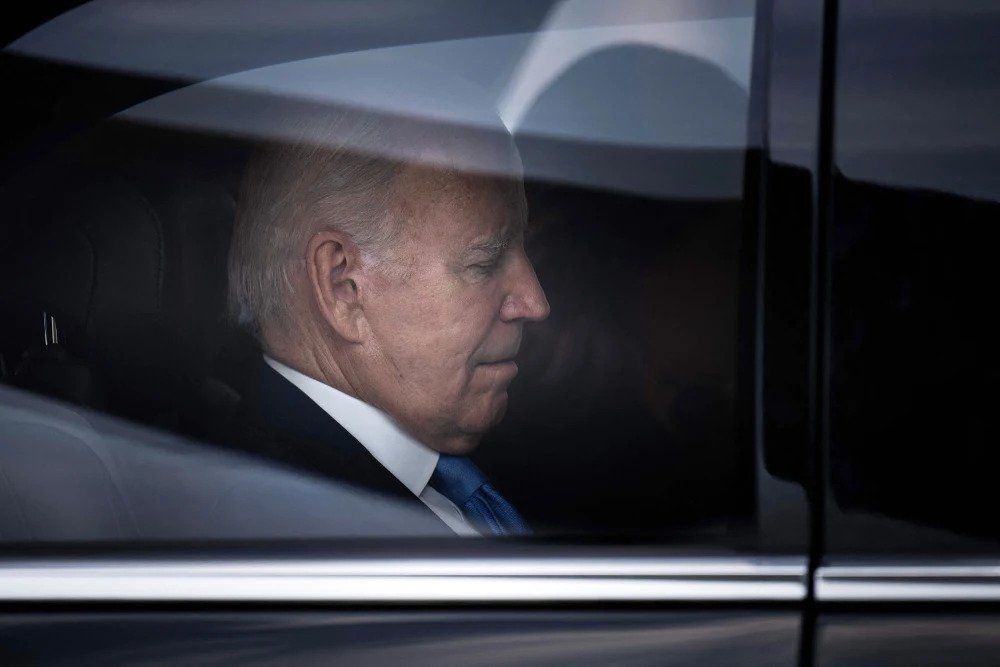President Joe Biden could soon face a politically charged decision about whether to release billions of dollars in funds to Iran to secure the release of Americans imprisoned by the regime.
The U.S. and Iran have renewed negotiations on a possible prisoner exchange and the indirect talks are showing signs of progress, said two Western officials and three sources with knowledge of the discussions.
The possible formula for the deal would include the release of prisoners in each country and freeing up to $7 billion from South Korean banks that is currently blocked by U.S. sanctions, the sources said. NBC News first reported on the prisoner exchange negotiations in February.
The two governments are also exploring a possible informal agreement designed to avert a crisis over Iran’s accelerating nuclear program, but it remains unclear if each side is willing to make the concessions necessary, including whether Washington would be willing to ease economic sanctions on Tehran. Reports of a possible informal understanding on nuclear issues first appeared in the Israeli and Iranian press.
U.S. and Iranian officials have traveled to Oman several times this year for indirect talks, with Omani officials relaying messages back and forth, according to a U.S. official and two Western officials who were not authorized to speak on the record due to the sensitive nature of the discussions.
The officials confirm that the discussions involved imprisoned U.S. citizens and Iran’s nuclear program. Earlier discussions were held between U.S. and Iranian officials in New York, where Iran has a U.N. mission.
The indirect talks on a possible informal understanding on Iran’s nuclear activities could potentially include a commitment from Tehran to fully cooperate with inspectors from the International Atomic Energy Agency and to refrain from enriching uranium beyond 60% purity. Iran has steadily expanded its uranium enrichment work and has enough fissile material for more than one nuclear weapon if it chose to enrich the material to 90% purity, experts say.
In return, the U.S. could possibly ease sanctions or the enforcement of some sanctions, though it’s unclear how far the Biden administration would be willing to go to relax the financial pressure on Iran caused by an array of U.S. economic restrictions.
If the negotiations on the possible prisoner exchange or nuclear issues continue to make progress, Biden would have to decide if he is willing to face domestic political criticism for giving Iran access to blocked funds or easing sanctions in the run-up to next fall’s presidential election. Former President Barack Obama came under fire from Republican lawmakers in 2015 when his administration gave Iran access to cash that had been blocked by sanctions just as Tehran released a group of imprisoned Americans.
But if there is no agreement on prisoners or on nuclear issues, Biden could face an international crisis if Iran opts to produce weapons-grade uranium enriched to 90%, a threshold that could prompt Israel to launch a strike on Iran’s nuclear facilities.
The State Department has denied the U.S. and Iran have reached any agreement related to Tehran’s nuclear program.
“Rumors about a nuclear deal interim or otherwise are false and misleading,” State Department spokesperson Matt Miller told reporters this week, later adding, “We have at all times believed that diplomacy is the best path forward.”
Western officials said if the two sides could reach an agreement on prisoners, it would improve the chances for an informal deal on a wider set of issues related to Iran’s nuclear program. Iran has denied it is planning to develop nuclear weapons and says the program is for purely civilian purposes.
Biden came into office promising to revive the 2015 nuclear deal between Iran and world powers known as the JCPOA that imposed limits on Iran’s nuclear activities in return for lifting U.S. and international sanctions. Former President Donald Trump pulled the U.S. out of the agreement in 2018, reimposed sanctions and introduced additional ones.
Negotiations aimed at restoring the 2015 nuclear accord collapsed last year.
Iran has struck an optimistic tone on the potential prisoner swap, though the U.S. has previously accused the regime of providing misleading statements that raised false hopes for the families of imprisoned Americans.
Nasser Kanaani, spokesperson for Iran’s foreign minister, said this week that “Negotiations for the exchange of prisoners between Iran and America are ongoing, and if the other side is as serious as we are, this event can happen in the near future.”
The U.S. government says there are three American citizens held in Iran — Siamak Namazi, Emad Shargi and Morad Tahbaz — as well as an unknown number of permanent U.S. legal residents, including Shahab Dalili.

One of the Americans, Namazi, has been behind bars in Tehran for more than seven years, longer than any other American in history.
Iranian authorities sentenced Namazi to 10 years on charges of “collaboration with a hostile foreign government.” The United Nations, human rights organizations and the U.S. government say that the charges are baseless and that his detention is an arbitrary violation of international law.
Families of the imprisoned Americans have had their hopes raised previously about a possible breakthrough only to face crushing disappointment when no agreement was reached.
The families have repeatedly asked for a face-to-face meeting with Biden but so far the White House has not met their request.
Namazi has accused successive U.S. administrations of failing to secure the release of detained Americans. In January, he went on a weeklong hunger strike, appealing directly to Biden to meet with the families of imprisoned Americans.
“In the past I implored you to reach for your moral compass and find the resolve to bring the U.S. hostages in Iran home. To no avail,” Namazi said in a letter written in his prison cell, addressing Biden. “Not only do we remain Iran’s prisoners, but you have not so much as granted our families a meeting.”
Source : NBCNews


